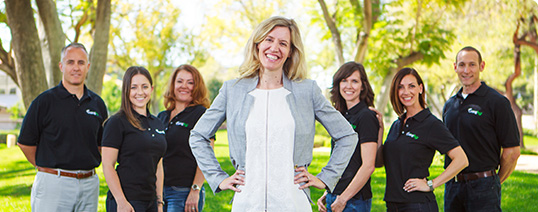Extracurricular Selection for College Admissions
Colleges want to know who you are. The activities you’ve chosen to participate in outside of the classroom give insight into who you are and what you will do while in college and beyond.
Colleges are not just looking to accept a student body that sits in their dorm rooms studying all day and night. They want an active student body that contributes to campus life beyond the classroom. Your extracurricular activities in high school offer a bit more insight into who you are and what you might bring to your college community.
So, you’ll want to choose your activities wisely.

What Extracurricular Activities Do Colleges Look For?
In general, it matters less whether you choose swimming or dance. Either one is great, as is the poetry club or your church youth group. What matters more is what you do in these clubs or activities. Have you held a leadership position? Have you switched every year to a different activity? Have you earned any awards, accolades or recognition? Have you had a job? How have you spent your summers?
Just as you are looking for the right fit college, college admissions officers are looking for students who will best fit into their campus, academic departments, residential halls and clubs. The research your Going Ivy admissions counselors will do on campus activities in particular can be invaluable. Your robotics club involvement might be an asset to some colleges, or your interest in equestrian sports. There are ways to use your extracurricular activities to your advantage in applications, and we can teach you how.
Going Ivy is a full-service college admissions advising group that understands getting admitted into your dream college isn’t about packaging yourself as something you think colleges want. It is about presenting your best self in your words, activities and achievements to your dream schools so that they want you as much as you want them.
Why Extracurriculars Matter
Colleges seek students who will enrich their campus culture. Your activities show:
- Who you are beyond grades: Activities reflect your interests, leadership qualities, and dedication.
- Your potential contributions: Colleges want an active, diverse student body that engages in campus life.
Harvard underscores the importance of these aspects, stating that admissions committees are interested in understanding “who you are and how you will contribute to the Harvard community”
Your Activities Should Makes Sense with Your Application
Above all, your activities should be connected and related to the story of who you are — the story that you will tell to prospective colleges. If you are indicating to colleges that you’d like to be a biology major, it would be nice for the colleges to see that you’ve volunteered at a local hospital or participated in your school’s science club. If your personal statement is about how music is such an important part of your life, the expectation is that you’ll have something like piano, dance, choir or band on your list of activities.
Aligning Activities with Your Goals
Your extracurriculars should tell a cohesive story about your interests and ambitions. For instance:
- Aspiring Biologist? Participate in science clubs, volunteer at hospitals, or join environmental groups.
- Passionate about Music? Include band, choir, private lessons, or composing music as your activities.
Just as the classes you take should show a progression to more challenging and advanced levels of each subject, your list of extracurricular activities should focus on first finding your talents and then showcasing and advancing them. In your freshman year, you might participate in the debate club. By your junior and senior year, it would be nice to see that you are leading the debate club and competing for awards.
With Going Ivy, we’ll help you weigh options of where to spend your precious time outside of school, not just based on what looks better to colleges. It will be based on what makes you happy and brings out the best in you, and that will look good to colleges.
Remember, colleges are not as interested in a well-rounded student as they are in a well-rounded student body. They are looking to fill their class with diversity of interests and curiosities. Showing a genuine passion for any one of those activities that you’ll carry with you to your chosen college, and maybe even professional life, is enough.
What Colleges Want to Know About Your Activities
The Common Application and many individual college applications ask for a listing of your activities in a small chart. It will look something like this:
| Activity | Grade (9, 10, 11, 12) | Hours per week/Weeks per year | Description |
| Activity 1 | 9 | 10 /mo | Description |
| Activity 2 | 11 | 40 / yer | Description |
| Activity 3 | 12 | 5 /mo | Description |
There won’t be much room for your description, and you’ll definitely want to include any leadership positions held. Although the space is limiting, try to avoid too many abbreviations or acronyms. Include school or club athletics, clubs, awards and honors, hobbies, summer camps, job or internship experience, and community involvement.
Many colleges also ask if you are planning on continuing with this activity in college. This is where research on the college is critical. If you played football in high school and the college you’re applying to does not have a football team, you’ll want to answer appropriately.
What Colleges Look For
While the type of activity is less crucial, your involvement and achievements are key. Here’s what to focus on:
- Consistency and Growth: Stick with activities over time, showing progression and increased responsibility.
- Leadership Roles: Holding leadership positions demonstrates initiative and ability to inspire others.
- Recognition and Awards: Highlight any accolades to show excellence and commitment.
- Work Experience: Jobs and internships add valuable experience and show time management skills.
- Summer Activities: Productive use of summer breaks, such as camps, volunteer work, or courses, can set you apart.
MIT’s admissions website highlights that they seek students who “demonstrate initiative and leadership in activities that are important to them”

What’s Most Important to You
Many colleges will ask you to choose one extracurricular activity and describe it in a short answer. The Common App asks: Please briefly elaborate on one of your extracurricular activities or work experiences (150 words or fewer). It’s a great chance to highlight the activity that meant the most to you and shows the most of your personality.
Many colleges in the Common App also offer a list of activities for your consideration and ask which ones are most interesting to you for participation on their campus. Colleges vary by how descriptive they are with these activities, but you’ll want to consider them all to show what might be occupying your time when you’re not in the classroom.
There are some activities that require a bit more explanation, and the space on this activity chart might be too limiting. If the college allows a supplemental submission of a resume (not all do), your Going Ivy counselor can work with you to make the resume count in your favor.
If you are an athlete looking to navigate the process of recruitment to your dream school, learn more about how Going Ivy can support you.
Engage in Meaningful Activities
Choose activities that resonate with you and bring out your best qualities. MIT emphasizes the value of depth over breadth; meaningful engagement in fewer activities often speaks louder than superficial involvement in many.
Key Points to Remember:
- Authenticity Matters: Engage in activities you are genuinely passionate about.
- Demonstrate Growth: Show how you have developed through your activities.
- Leadership is Key: Take on roles that challenge you and showcase your leadership skills.
- Community Impact: Highlight how your activities have made a difference in your community.
Call Going Ivy
Deciding what extracurricular activities are most important to you and most important to potential colleges is a complex process. When you have help from the admissions experts at Going Ivy, you may increase your chances of being successful in your applications. You can schedule a free consultation with us, and ask any questions you might be wondering about with your extracurricular choices and how they affect your overall college goals. Call us today to schedule your appointment and to learn more about college admissions and how we can help.
Clients Accepted To

Our Team
Meet our team of former admissions officers, Ivy League and top school graduates, and tutors.
